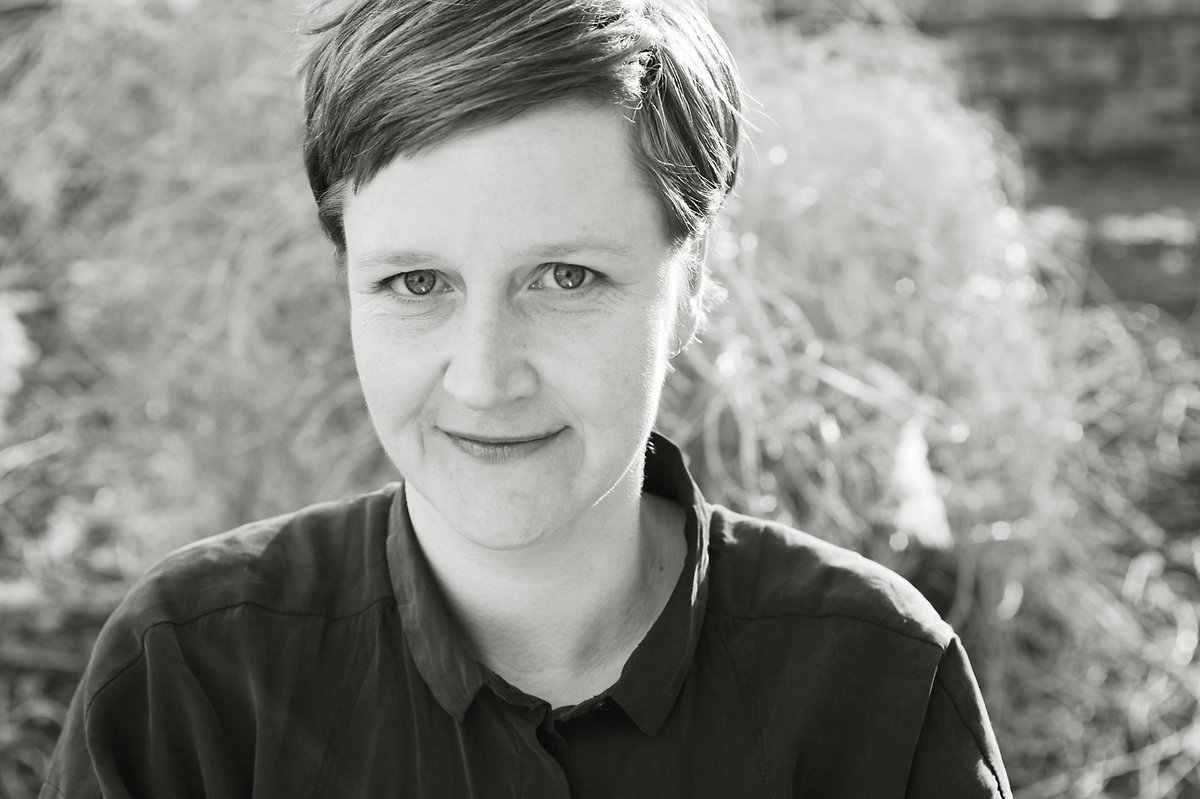
Scientific researcher at the Research Institute Social Cohesion
Bischofsvilla
Otto-Adam-Str. 5
78467 Konstanz
Germany
Internal Mail: Box 914
Telephone: +49 7531 88-5813
E-Mail: anna.pollmann@uni-konstanz.de
Curriculum vitae
Anna Pollmann is a cultural historian and has been a research associate at the Research Institute for Social Cohesion at the University of Konstanz since 2021. Together with Christopher Möllmann, she is working on the project "Key Concepts of 'Zusammenhalt'. A critical vocabulary". She studied at the University of Leipzig and was a research assistant at the Leibniz Institute for Jewish History and Culture Simon Dubnow there from 2008-2016. In 2017, she also received her doctorate there with the thesis "Fragments from the End of Times. Günther Anders’ Negative Historical Thinking". In 2018/19 she was a Post Doc Researcher at the Hebrew University of Jerusalem with aa Minerva Fellowship from the Max Planck Foundation, where she worked on a project on the Vietnam War Crimes Tribunals.
Research interests
Her research interests include intellectual history (post-1945), modern Jewish history, 20th century conceptual history, the history and impact of the Holocaust, and historical theory.
Current project
Key Concepts of "Zusammenhalt". A critical vocabulary
If the political and media rhetoric of the Federal Republic of Germany in the past decade could be summed up in a "magic word", it would probably be that of "gesellschaftlicher Zusammenhalt". This metaphor is only inadequately translated to English as "cohesion". Like the 19th-century concept of progress, which bundled the promise of economic prosperity, technological development and political emancipation, this iridescent term "Zusammenhalt" continues to shape social discourse.
The concept of progress was inextricably linked with the formation of modern society and a prognosis of its laws of motion. In contrast, the phrase "Zusammenhalt" evokes preservation rather than modernization, nostalgia rather than utopia, immobilization rather than movement. Thus, however, it is to be understood not only as a linguistic complement of temporal, but also of spatial dynamics. It opposits everyday and scientific terms of an emphatic as well as critical discourse of globalization, for which entanglements and asynchronies of economic, political, and cultural dynamics were characteristic, as well as the transgression of borders. It is above all the bourgeois center that appeals "gesellschaftlicher Zusammenhalt" as a consequence of social disintegration. It is unlikely to become a point of reference in social and political struggles. Despite this normative and milieu-specific orientation, the term "Zusammenhalt" is rapidly spread in policy papers and political education, in academic funding logics, as well as an analytical category.
The emerging volume will critically examine the politically and medially present semantics of "gesellschaftlicher Zusammenhalt" in various thematic fields. In our critical vocabulary, we programmatically refrain from capturing the currently so intensively discussed, figurative term via other large-scale concepts such as integration, solidarity, identity, and so on. Instead, the volume aims to decenter the hegemonic discourse from the margins via smaller, more concrete key concepts situated in everyday social practices. We are particularly interested in the conflict-loaded, marginalized, and figurative notions of sociality that can be used to transcend the nationally and normatively connoted metaphor of "Zusammenhalt". In doing so, we also want to subvert the academic proliferation of this politically central semantics of the last decade, of which we ourselves are, after all, a part.
Publication list
-
(2015): ZeugenschaftPollmann, Anna. 2015. Zeugenschaft. In D. Diner (Ed.), Enzyklopädie jüdischer Geschichte und Kultur. Band 6: Te-Z: 547–552. Stuttgart: J. B. Metzler.
dc.title:
-
(2012): Die Rückkehr von Günther Anders nach Europa : Eine doppelte Nach-GeschichtePollmann, Anna. 2012b. Die Rückkehr von Günther Anders nach Europa : Eine doppelte Nach-Geschichte. In D. Diner (Ed.), Jahrbuch des Simon-Dubnow-Instituts = Simon Dubnow Institute Yearbook XI: 389–409. Göttingen: Vandenhoeck & Ruprecht.
dc.title:
-
(2012): Ein offener Brief an Eichmanns Söhne : Günther Anders schreibt Klaus EichmannPollmann, Anna. 2012a. Ein offener Brief an Eichmanns Söhne : Günther Anders schreibt Klaus Eichmann. In W. Renz (Ed.), Interessen um Eichmann : Israelische Justiz, deutsche Strafverfolgung und alte Kameradschaften: 241–258. Frankfurt a. M.: Campus.
dc.title:
-
(2010): Fortschritt und Geschichte : Zum Begriff der Antiquiertheit bei Günther AndersPollmann, Anna. 2010b. Fortschritt und Geschichte : Zum Begriff der Antiquiertheit bei Günther Anders. Einsicht : Bulletin des Fritz Bauer Instituts, (03): 30–33.
dc.title:
-
(2010): Pulp und Gedächtnis : Stalag-Romane und Zeugenschaft des Holocaust in IsraelPollmann, Anna. 2010a. Pulp und Gedächtnis : Stalag-Romane und Zeugenschaft des Holocaust in Israel. Phase 2, 35. https://kops.uni-konstanz.de/handle/123456789/67188.
dc.title:
-
(2009): Ewout van der Knaap: „Nacht und Nebel“ : Gedächtnis des Holocaust und internationale WirkungsgeschichtePollmann, Anna. 2009. Ewout van der Knaap: „Nacht und Nebel“ : Gedächtnis des Holocaust und internationale Wirkungsgeschichte. Bulletin: Simon-Dubnow-Institut für Jüdische Geschichte und Kultur e.V., (11). https://kops.uni-konstanz.de/handle/123456789/67279.
dc.title:
-
(2008): Umwege kosmopolitischen ErinnernsPollmann, Anna. 2008. Umwege kosmopolitischen Erinnerns. Phase 2, 30. https://kops.uni-konstanz.de/handle/123456789/67230.
dc.title:
